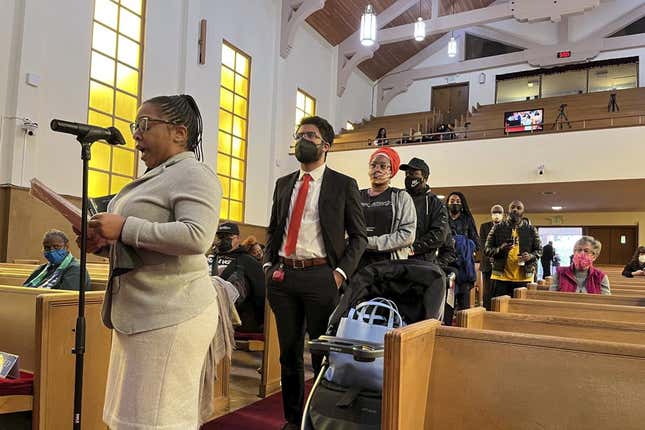
California’s first-in-the-nation task force on reparations released a nearly 500-page report detailing the harms perpetrated by the state against African Americans and recommending steps to address those wrongs, according to ABC News.
The report details California’s participation in slavery and its post-abolition laws, which further disenfranchised and harmed Black residents. It also recommends steps to address those wrongs, including expanded voter registration, making it easier to hold violent police accountable, and improving Black neighborhoods.
A crucial part of the recommendations is creating a unique office that would, in part, help African Americans descended from free or enslaved Black people in the country at the end of the 19th century document their eligibility for financial restitution.
“I hope that this report is used not only as an educational tool, but an organizing tool for people not only in California but across the U.S. to educate their communities,” she said, adding that the report also highlights “contributions of the African American community and how they made the United States what it is despite ongoing oppression and degradation.”
Taskforce member Lisa Holder cites the history of slavery, Jim Crow, and segregation as just some of the reasons reparations are needed.
“The depth, breadth and scope of the report is astounding,” Holder said. “We are evaluating racism beginning in 1619 and going all the way to the present … and connecting (past) injustices to injustice that we are seeing today.”
The task force recommends compensating people forced out of their homes for construction projects such as parks and highways and general renewal, as happened to San Francisco’s historically Black and once-thriving Fillmore neighborhood.
In 2020, California Gov. Gavin Newsom signed legislation to create the task force – the only state in the country moving ahead with the plan. Chicago suburb of Evanston, Illinois, became the first U.S. city to make reparations available to Black residents last year. This draft report does not provide a comprehensive reparations plan due to lawmakers next year.
Taskforce Chair Kamilah Moore stated an Office of African American or American Freedmen Affairs could help African American residents file claims and trace their lineage to prove eligibility for individual restitution. A more complex determination, including proposals for a reparations plan’s size, structure, and logistics, will come in a final report to California’s legislature and governor next year.

